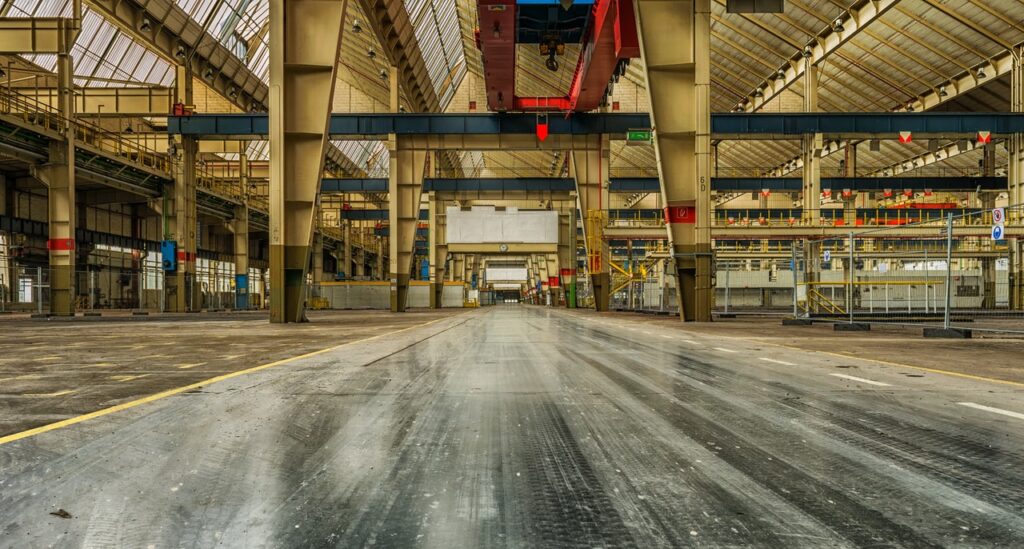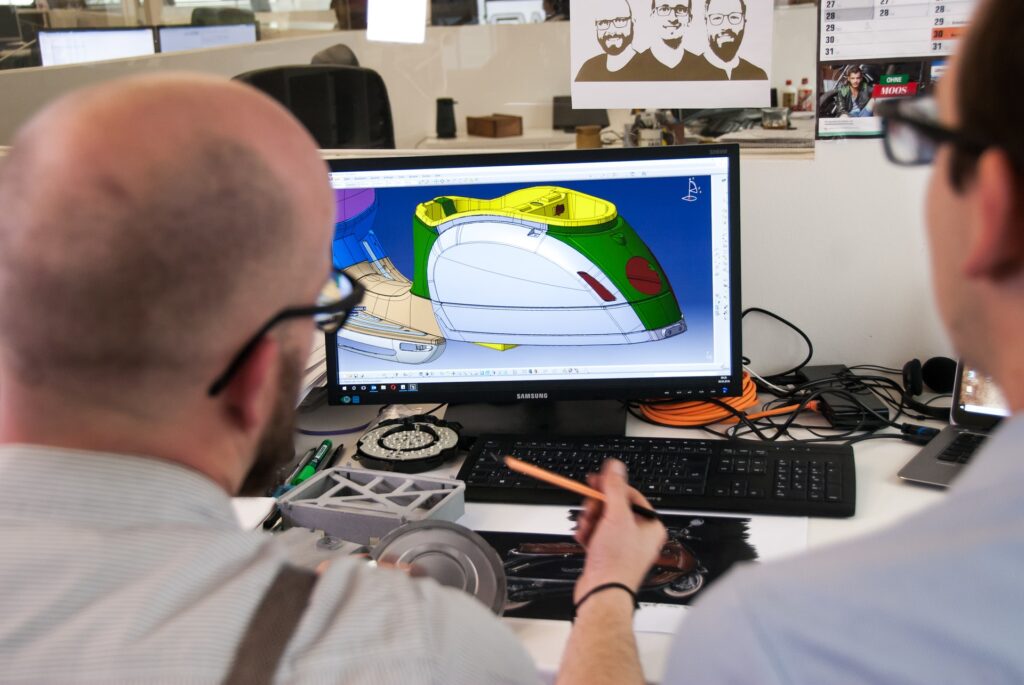Do you wonder what it would be like to be a mechanical engineer in the industrial field? Wonder no more!
Mechanical Engineer
Mechanical engineering is one of the most versatile and diverse engineering fields, it is the study of systems and objects in motion. The mechanical engineering division makes contact with virtually every feature of modern life, this includes the human body, which is a highly intricate device. It is required in the field of mechanical engineering to possess a knowledge of crucial areas including electricity, dynamics, thermodynamics, materials science, mechanics, and structural analysis. Its history can be traced all the way back to the industrial revolution in the 18th century, however mechanical engineering’s development can even be traced back several thousand years around the world. The early stages of mechanical engineering date back to the inventors and craftsmen of the first device and basic machines powered wind or water energy, animal or human labor, or a combination of both.

A mechanical engineer’s role is to take a product from an idea to the marketplace. To accomplish this, mechanical engineers must be able to determine the thermal environment and forces that a product, its parts, or subsystems will encounter. They will design them for aesthetics, functionality and durability, and establish the best development direction that will make sure that operation runs smoothly without failure. Mechanical engineers are supported by various computational tools including, Computer-Aided Manufacturing (CAM), Computer-Aided Design (CAD),Failure Modes & Effect Analysis (FMEA). Computational Fluid Dynamics (CFD) and Finite Element Analysis (FEA).
Industrial Engineer
Industrial engineering is an engineering profession that is concerned with the optimization of complex systems, processes, or organizations by developing, improving and implementing integrated systems of money, people, information, knowledge, equipment, energy and materials. Industrial engineering can be traced back to the start of the Industrial Revolution in the late 18th century.
Before, industrial engineering was motivated almost entirely by the motive to raise the efficiency and profitability of manufacturing operations. Since then, the continuous development and invention of new machinery and power sources have provided new challenges for industrial engineers to find new applications for these technologies and optimize their use to increase productivity.
Improving the quality of products and services, complying with government regulations, increasing efficiency, protecting the environment, c, reducing production costs and ensuring worker health and safety are all areas that industrial engineers are concerned with. . They work to get rid of waste of money, time, energy, materials, and other merchandise,” as stated by the Institute of Industrial Engineers. For example, industrial engineers may work to make assembly queues more efficient and safer, to reduce a funfair ride line, streamline an operating room, and accelerate the delivery time of items.

Mechanical & Industrial Engineering Education
Mechanical Engineer
Requirements for all engineering schools include a high school diploma with a full array of science and math courses, plus humanities and computer studies. Preparation in high school should include classes such as: trigonometry, algebra, geometry and calculus, plus the sciences chemistry, physics and biology. Many (most, basically all!) employers prefer a bachelors degree in mechanical engineering for entry-level mechanical engineering jobs.
A bachelors degree requires general classes in science, math, humanities, engineering and social sciences during the first two years, and then specialized classes for the remaining years. The mechanical engineering curriculum also includes basics of other engineering disciplines, such as electrical, civil and chemical. This will provide a base knowledge of the other engineering fields and will help future mechanical engineers branch out into other areas of engineering, as we are writing about here! Typical subjects include physics, thermodynamics, calculus, dynamics and fluid dynamics, statics and laboratory sections. A lot of engineering degree programs also include internships.
Students interested in the private industry and development positions in academia may advance to obtain a masters or doctorate in mechanical engineering. Graduate programs in mechanical engineering typically involve research and development projects in certain areas, concluding in a submitted thesis on that area/subject. Accreditation from the Accreditation Board for Engineering and Technology (ABET) is usually required for degree programs.

Industrial Engineer
Industrial engineers typically hold a bachelor’s degree in industrial engineering, logistics, or business management, although most employers prefer a master’s degree in a related field and work experience, especially for advanced positions. Certificates may be earned by industrial engineers in division specialties such as engineering management, supply chain management, health care, project management by the Institute of Industrial Engineers. State and local certification and licensing requirements may also apply. Industrial engineers will also be studying the following subjects physics, chemistry, computers, electronics, manufacturing, ergonomics, business social sciences, and math.
During industrial engineering degree programs, undergraduates require core coursework in planning and statistics, production systems, and manufacturing systems design, the BLS reported. The focus is on learning the analytical, experimental and computational practices needed to integrate systems that include real-world variables such as information, people, equipment, energy and materials in all ABET-accredited programs.
A graduate student from an accredited industrial engineering program will possess the skills needed to implement and design these complex systems and to figure out ways on how these existing systems can be optimized.
Mechanical & Industrial Engineering Job Description
Mechanical Engineer
Elevators, refrigerators and air-conditioners, are designed and manufactured by mechanical engineers. Also, electrical tools and vehicle engines are made more adaptable through the investigation carried out by these professionals, particularly by the exploration of ground breaking thermal sensors and more effective tools devices.
The importance of mechanical engineers in the electronics, automation, automotive, biotechnology, aerospace, manufacturing industries, computer is very large. They create, test and manufacture all kinds of mechanical engines, devices, machines and tools.
Mechanical engineers invest a huge section of their day working on laptops and computers, as they build models and simulations of their creations using CAD (Computer Aided Design). They also fulfil an analysis of the results generated by these experiments, if they happen to find an issue in their original model, mechanical engineers have the knowledge to create a resolution to these issues.

Occupational duties of a mechanical engineer:
- Design and revise plans, technical drawings, and details using computer software
- Plan, design, and manufacture mechanical concepts and designs for new products
- Ensure project timeline is met and project stays within budget
- Carry out engineering calculations to aid with design work
- Design and create operational prototypes for improved testing and customer demonstration
- Work alongside with multi-discipline engineering teams, and also team up with with both contractors and vendors.
Industrial Engineer
All stages of production and processing require industrial engineers . They create brand new amenities from start to finish, they also are in charge expanding, upgrading or re-configuring existing amenities. Another responsibility of industrial engineers is to write up specifications for devices purchased from outside merchants and make sure that those devices meet those requirements or develop brand new equipment. There also may be a need to design new processes, re-purpose existing equipment and facilities, and design new fixtures and tools.
Eliminating wastefulness in the production processes is what Industrial engineers focus on. They create effective ways to utilize information, machines, workers, materials, and energy to provide a service or develop a product. It is very common for industrial engineers to work in collaboration with other professional individuals such as production staff and industrial engineering technicians.
It is important that industrial engineers have a standard working knowledge of a large variety of divisions of engineering and also be up to date with work procedures, equipment, tools and materials in order to design systems and equipment and facilities, that meet measures for environmental protection, cost safety and quality.

Increasingly, industrial engineers are dependent on Computer-Aided Design (CAD) systems to create and develop equipment and facilities . Another design system they utilize are computer modeling systems to imitate supply chains and process flows to maximize practicality and lessen expenses. A complete inventory of required abilities and skills for industrial engineers are available on MyMajors.com.
Mechanical Engineer in the Industrial Field
Modelling and specialist design skills are both skills that a mechanical engineer will have, however they will have no knowledge of general industrial procedures. Additionally, an industrial engineer will not know how systems function. When deciding on suited job roles, an industrial engineer is a better fit for the production department, whereas a mechanical engineer is better suited to an engineering department. Mechanical engineers are in charge of designing and developing crucial tools and machinery, including heart monitors and vehicle engines. Industrial engineers are in charge of understanding the processes, materials and costs that come with jobs of the larger-scale manufacture to guide efficiency.
Mechanical and industrial engineers (and a mechanical engineer in the industrial field) utilize a deep understanding of mathematics, physics, and analysis to develop machines and systems. The former concentrates on electricity, combustion and thermodynamics to create intricate machines. The last mentioned focuses on creating workflow and making production more efficient. Engineers in both career fields may work on teams during the planning stage, along with other engineers and designers.
A mechanical engineer in the industrial field will apply mathematics, science and engineering methods to complicated system operations and integration. These systems are so grand and complicated, mechanical engineers will need possess skills and knowledge across a diverse variety of disciplines in the field, plus the ability to work well with people, and a broad systems perspective. They will utilize their skills and knowledge to advance systematic procedures by using operation management, statistical analysis, interpersonal communication, quality control design, problem solving. computer simulation, and planning.
A mechanical engineer in the industrial field may apply their skills to a variety of settings:
- Management engineer
- Ergonomist
- Operations analyst
- Quality engineer
If an individual has a interest in perusing a career as a mechanical engineer, one may find it beneficial to earn a graduate degree to qualify as a physicist, since both are interested in the movement and reactions of matter. If, however, you’re more interested in a career as an industrial engineer, it would be beneficial to look into a job as an engineering manager, as these focus closely on deadlines and budgets.
If you have anything to add, please feel free to leave a comment down below, and sign up to our newsletter for more of the same content!


